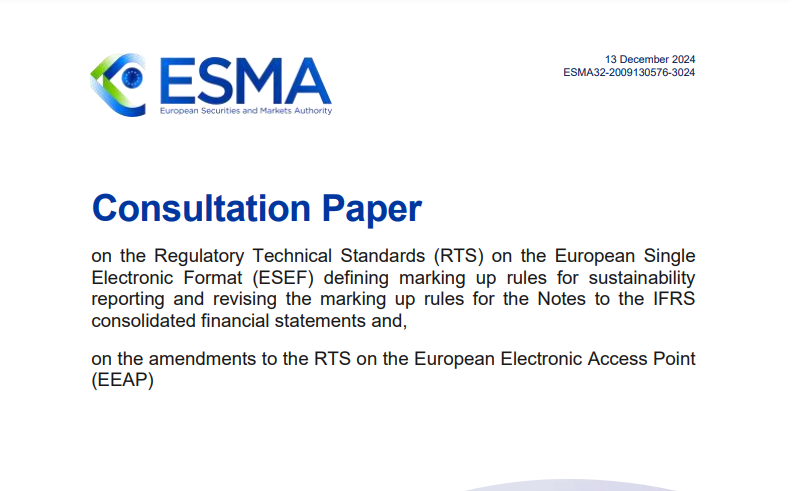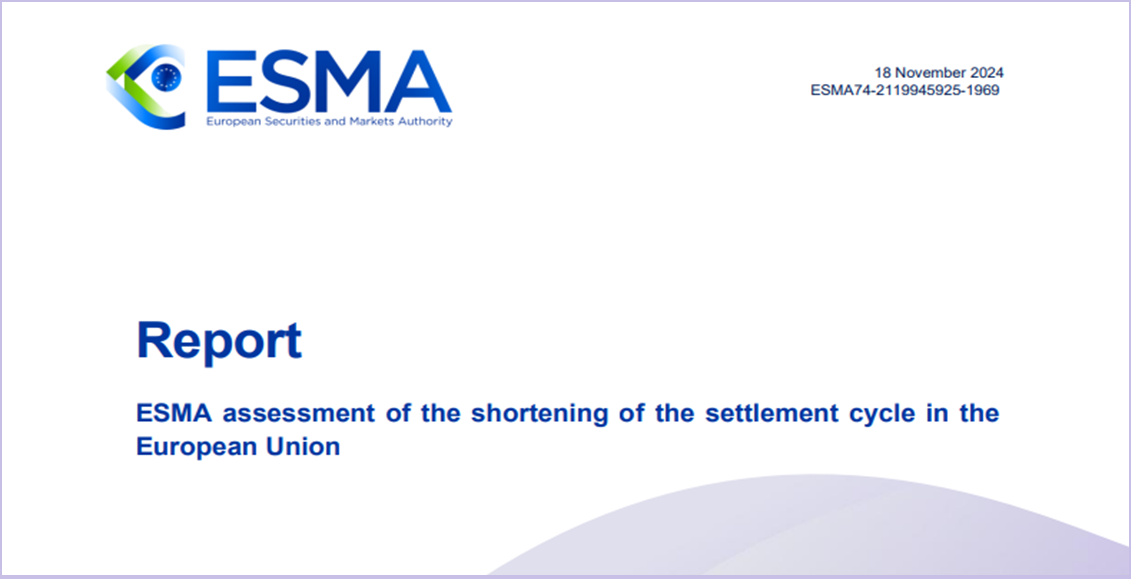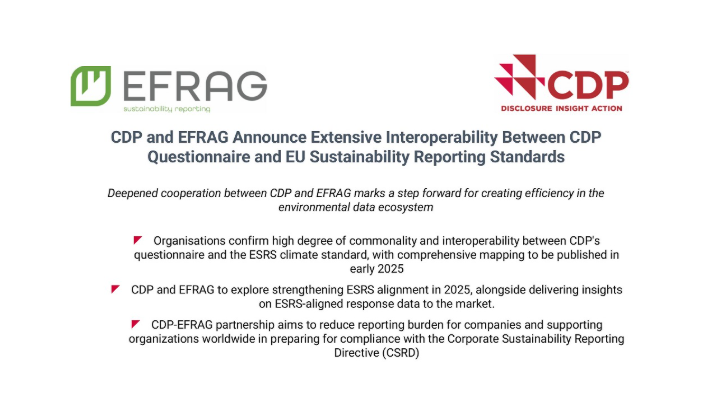ESMA launches consultation on digitalisation of sustainability and financial reporting
In December 2024, the European Securities and Markets Authority (ESMA), the EU's financial markets regulator, published a consultation paper seeking feedback on adapting the European Single Electronic Format (ESEF) for sustainability reporting. The proposals, aimed at improving data accessibility and reducing reporting burdens, include phased implementation of sustainability standards and updates to technical regulations. Stakeholders can submit feedback until 31 March 2025, with final recommendations and technical standards expected by the third quarter of 2025. These initiatives are set to streamline reporting, enhance investor trust, and strengthen businesses' market competitiveness, underscoring the EU's commitment to integrating sustainability into its financial framework.

In December 2024, the European Securities and Markets Authority (ESMA), the EU's financial markets regulator and supervisor, has published a consultation paper to gather stakeholder feedback on how the European Single Electronic Format (ESEF) could be adapted for sustainability reporting. The proposals also aim to reduce the burden associated with financial reporting.
Stakeholders are invited to submit their feedback by 31 March 2025. The analysis of feedback will be completed in the second quarter of 2025. The final report and draft standards will be submitted to the European Commission in the third quarter of 2025. These proposals are particularly relevant for listed and unlisted companies, parent companies of large groups, auditors, investors, data analysts, and other financial information users, as well as stakeholders involved in electronic reporting under the ESEF Regulation.
ESMA’s Priorities
ESMA emphasises the importance of providing investors with accessible and comparable information to enhance and accelerate data-driven investment strategies. The integration of digital sustainability and financial data into the future European Single Access Point (ESAP) will ensure effective access and use of this information by investors.
Key Points Considered in the Document:
- Development of tagging rules for sustainability reporting: ESMA proposes the introduction of sustainability standards in three stages, each lasting two years. Full implementation will focus on disclosure under Article 8, related to the sustainability and environmental sustainability of companies' activities;
- Revising the approach to marking up notes to consolidated financial statements under IFRS: In response to negative feedback from issuers and users over the past two years, it is proposed to reconsider the approach to marking up text in the notes in order to simplify the process, making it less burdensome for issuers while improving the comparability of data for users;
- Changes to technical standards for the European Single Access Point (ESAP): Amendments to the regulations concerning the European Access Point for corporate information will improve the process of collecting and processing data provided by companies in sustainability reporting.
In addition, the document thoroughly examines changes to the Corporate Sustainability Reporting Directive (CSRD), which introduces new requirements for disclosing information on a company’s material impacts on sustainability, as well as how these factors affect its development, performance, and financial condition. These requirements apply not only to large and medium-sized companies but also to those regulated by third-country legislation that do business in the EU, provided they have securities traded on EU regulated markets.
Particular attention in the document is given to the digitalisation of reporting, which will now be carried out in accordance with the EU Regulation on the European Single Electronic Format (ESEF) and XBRL standards. This approach significantly improves the accessibility, readability, and comparability of data, creating new opportunities for investors and enhancing transparency in EU financial markets.
Conclusions and Implications for Business
The proposed updates are set to create a more efficient and transparent reporting ecosystem in the EU. By standardising sustainability and financial disclosures, businesses can benefit from:
- Enhanced Investor Trust: Improved access to reliable and comparable data will foster stronger relationships with investors;
- Operational Efficiency: Harmonised digital reporting frameworks will reduce duplication and simplify compliance efforts;
- Market Competitiveness: Companies adopting these standards early will gain a competitive edge by demonstrating leadership in sustainability and transparency.
While the transition to these new standards may pose initial challenges, such as adapting reporting processes and technologies, the long-term benefits outweigh the short-term adjustments. ESMA’s phased implementation plan provides a structured approach, allowing businesses to adapt gradually.
These initiatives underline the EU’s commitment to integrating sustainability into its financial ecosystem, reinforcing the importance of digitalisation and sustainable finance for future growth and resilience.



